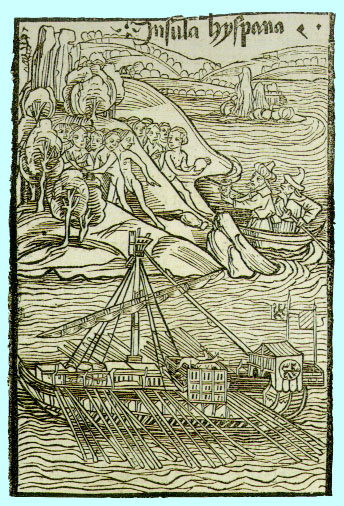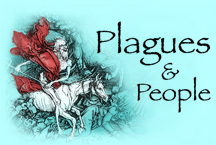It has pleased Divine Justice to give and send us unknown afflictions,
never seen or recognized or found in medical books, such as this serpentine
disease. The which turned up and was observed in Spain in the
year of Our Lord 1493 in the City of Barcelona, which city was infected
and, in consequence, all Europe and the universe in all known and communicable
regions. This disease had its origin and birth once and for all in
the island now called Hispaniola [Haiti and the Domincan
Republic], as has been determined by wide and infallible experience.

And as this island was discovered by the Admiral Don Cristobal Colón
[Christopher Columbus], at that time holding conversation
and communication with the people thereof, and as the disease is contagious,
it easily laid hold of them and presently was seen in the fleet itself.
And as it was a disease never seen nor known by the Spaniards,
although they felt pains and other effects of the aforesaid malady, they
attributed it to the hardships of the sea, or to other causes according
to the fancy of each of them....
I call it the Serpentine Disease of the Island of Hispaniola
... because according to its loathsomeness I do not know anything to which
I could more naturally compare it than to the serpent. For as the
serpent is abominable, terrifying and horrible, so is this disease abominable,
terrifying and horrible. It is a grave disease that separates and
corrupts the flesh and breaks and rots the bones and disrupts and contracts
the sinews, and consequently I give it that name. |


